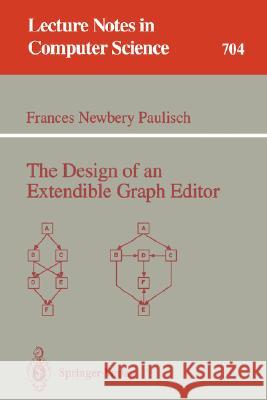The Design of an Extendible Graph Editor » książka
The Design of an Extendible Graph Editor
ISBN-13: 9783540570905 / Angielski / Miękka / 1993 / 196 str.
Graphs can be used to convey information about relationships in many applications. State transition diagrams, PERT/CPM charts, and entity-relationship diagrams are a few examples of many applications involving graphs. Typically, nodes in the graph represent items in the application and the edges represent the relationships among these items. A graph editor is an interactive tool that presents a graph to the user pictorially and allows the user to edit the graph. This monograph presents the design of an extendible graph editor, which is a graph editor that can be adapted easily to many different application areas. Several fundamental and recurring problem areas associated with graph editors are investigated and a solution is proposed for each. The topics investigated are: - Graph layout: a layout constraint mechanism is presented which can easily be combined with various graph layout algorithms. - Graphical abstraction: a novel clustering techniquecalled edge concentration is presented which can reduce the apparent complexity of the graph. - Persistence: the graph structures produced by theeditor can be kept in long-term storage using a standardized, external format for graphs. - Extendibility: the design of the proposed graph editor makes it easy to adapt to various applications. To demonstrate their feasibility, the proposed solutions have been incorporated into EDGE, an extendible graph editor protoype.











